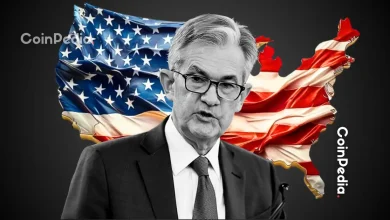
India’s Crypto Crackdown Intensifies – High taxes, TDS, and tax notices are driving traders and exchanges to demand policy reform.
Cybercrime Fuels Regulatory Caution – Rising crypto scams prompt CBI action as India prioritizes safety over rapid Web3 adoption.
India’s stance on cryptocurrency continues to spark debate. On one hand, the government imposes a steep 30% tax on crypto gains, prohibits offsetting losses, and enforces a 1% TDS on every crypto transaction. On the other hand, it hasn’t outright banned digital assets, leaving the sector stuck between regulation and uncertainty.
Mixed Signals From India’s Crypto Policy
India’s crypto industry is divided. While Raj Kapoor, CEO of the India Blockchain Alliance, believes strict rules are better than ambiguity, many crypto players argue for reform. Local exchanges are pushing for:
- Reducing TDS from 1% to 0.01%
- Allowing losses to be offset against gains
However, with rising concerns about tax evasion and cybercrime, authorities are hesitant to embrace liberal crypto policies just yet.
Indian Tax Authorities Are Watching Crypto Traders Closely
The Indian Income Tax Department has issued notices to thousands of individuals who traded digital assets but failed to report them in the FY 2022–23 and 2023–24 tax filings.
Authorities suspect that some traders used crypto as a tool for tax evasion, exploiting the lack of detailed reporting standards during the early days of regulation.
Crypto traders must now correct their filings using the updated return option. CoinDCX Co-founder Sumit Gupta has advised all users to report crypto income, including earnings from airdrops or global exchanges, and emphasized the need to stay compliant.
India’s Crypto Tax Rules: A Barrier to Growth?
India’s current crypto tax policy includes:
- 30% capital gains tax on digital assets
- No loss offset allowed
- 1% TDS on transactions exceeding Rs. 10,000
Due to these tough regulations, top global exchanges like OKX have exited the Indian market. Even homegrown platforms feel the pressure, urging policymakers to reconsider the TDS rate and revise the tax structure to promote growth and investment.
Crypto Crime Rising in India: A Key Concern
India’s reluctance to ease crypto regulations stems in part from the rise in crypto-linked cybercrimes.
- Recently, the CBI arrested Rahul Arora, seizing over $327,000 in crypto tied to scams in the U.S. and Canada.
- In February, the GainBitcoin scam led to raids on 60 locations and the seizure of $2.9 million in digital assets — a case involving over $800 million in fraud.
The Central Bureau of Investigation (CBI) has now built in-house systems to track and seize crypto, signaling the government’s focus on creating a safer crypto environment before relaxing policies.
Final Take: India Isn’t Crypto-Unfriendly, But It’s Cautious
India isn’t against crypto, but it’s not fully embracing it either. With tax notices being sent, foreign platforms exiting, and cybercrimes increasing, the focus remains on compliance and safety rather than rapid liberalization. Until India establishes a robust regulatory framework, a truly crypto-friendly economy might remain out of reach.
Never Miss a Beat in the Crypto World!
Stay ahead with breaking news, expert analysis, and real-time updates on the latest trends in Bitcoin, altcoins, DeFi, NFTs, and more.
FAQs
Yes, crypto is legal to own and trade in India, but it’s not recognized as legal tender. It’s classified as a Virtual Digital Asset (VDA).
Yes, crypto gains are taxed at a flat 30% in India, along with a 1% TDS on transactions over ₹10,000. No loss offsetting is allowed.
Multiple bodies regulate crypto in India, including the Ministry of Finance, RBI, SEBI, and FIU-IND, focusing on taxation, AML, and financial stability.
Trust with CoinPedia:
CoinPedia has been delivering accurate and timely cryptocurrency and blockchain updates since 2017. All content is created by our expert panel of analysts and journalists, following strict Editorial Guidelines based on E-E-A-T (Experience, Expertise, Authoritativeness, Trustworthiness). Every article is fact-checked against reputable sources to ensure accuracy, transparency, and reliability. Our review policy guarantees unbiased evaluations when recommending exchanges, platforms, or tools. We strive to provide timely updates about everything crypto & blockchain, right from startups to industry majors.
Investment Disclaimer:
All opinions and insights shared represent the author's own views on current market conditions. Please do your own research before making investment decisions. Neither the writer nor the publication assumes responsibility for your financial choices.
Sponsored and Advertisements:
Sponsored content and affiliate links may appear on our site. Advertisements are marked clearly, and our editorial content remains entirely independent from our ad partners.








